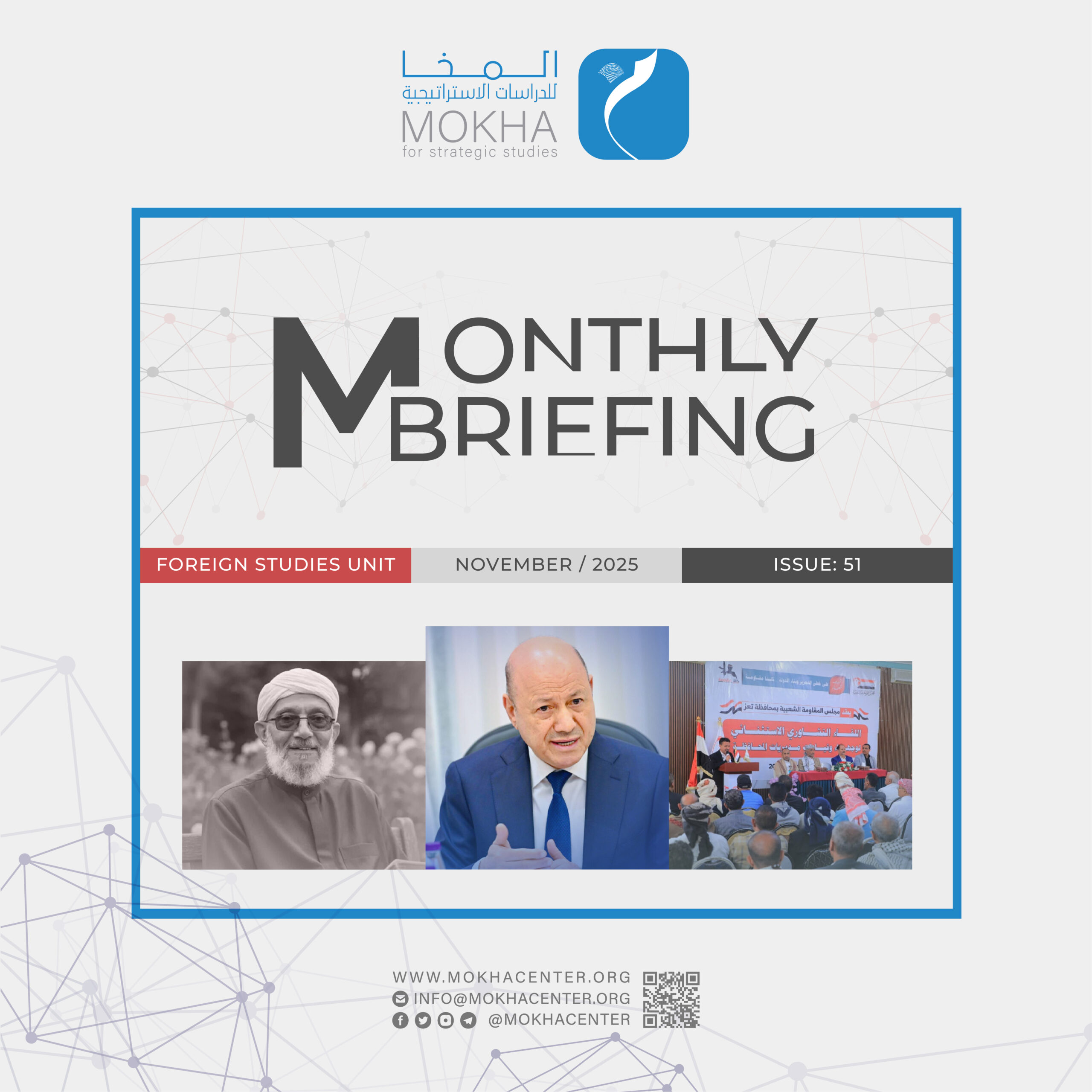The impact of Russia-Ukraine Crisis on Yemen

Jonathan Fenton-Harvey
As the world’s attention has been fixated on Russia’s invasion of Ukraine and the inevitable global consequences, ordinary civilians across the Middle East have faced a consumer crisis following skyrocketing prices of oil, wheat, and other commodities. Yemen in particular looks set to endure harsh ramifications from the Ukraine conflict.
Meanwhile, Russia’s increased expansionist vision may also have geopolitical implications for Yemen, as it could eventually take a more interventionist stance in the country. After all, Moscow was the patron power of South Yemen until 1990, when the People’s Democratic Republic of Yemen (PDRY) was a Marxist ally of the Soviet Union when it controlled south Yemen.
Since 2015, Russia has become a dominant powerbroker in the Middle East and North Africa, after intervening to prop up Bashar al-Assad’s regime in the Syrian civil war. In the Gulf region, it has expanded its military ties and cooperation with Saudi Arabia and the United Arab Emirates (UAE), while it has maintained lines of communication with various Yemeni actors.
As Vladimir Putin evidently seeks to revive the Soviet Union’s former heritage, the Ukraine crisis could ultimately raise the prospect of Russia supporting Yemen’s pro-southern independence movement, the Southern Transitional Council (STC). While many older members of the south Yemeni elite still maintained contacts with Russia, STC leaders have often tried to boost relations with Moscow.
Humanitarian consequences
Soon after Russia invaded Ukraine, the World Food Program (WFP) warned the crisis could likely further increase fuel and food prices, especially grains, in import-dependent Yemen where prices have soared in many areas in the past year.
According to a report by the Middle East Institute, Ukraine exports around 95 percent of its grain through the Black Sea while over 50 percent of its wheat exports went to the Middle East and North Africa in 2020. Thus, the conflict in Ukraine has raised wheat prices to unprecedented high rates, higher than that of the 2008 financial crisis.
Yemen is particularly vulnerable among Middle Eastern countries as it imports around 40 percent of its wheat from Ukraine and Russia. According to residents, some merchants have also raised prices following the increased demand from Yemenis.
Due to limited funding from international donors, the WFP has already been forced to ration food supplies across Yemen, in a move it has described as to “take food from the hungry to feed the starving.” As a result, it has cut food for 8 million people out of the 13 million it provided food before prior to January 2022.
Despite these rations, most Yemenis depend on humanitarian aid just to survive. In the last three months of 2021, those who experienced food insecurity or shortages jumped from 15 million to 16 million. Thus, a prolonged war in Ukraine would exacerbate Yemen’s humanitarian crisis, and this is a heightened risk as ceasefire talks have faltered and Moscow looks set to move into the Ukrainian capital Kiev, meaning that the conflict could continue for the foreseeable future.
The UAE’s interests
Meanwhile, the two Gulf states involved in Yemen’s war, namely Saudi Arabia and the UAE, have strengthened ties with Moscow. This is particularly true of Abu Dhabi, which has sought to capitalize upon Moscow’s growing expansion in the wider region, to bolster its own geopolitical clout.
Abu Dhabi’s desires to maintain ties with Moscow became apparent when it initially refused to condemn Russia’s invasion of Ukraine at the UN Security Council. Though it eventually condemned Russia’s actions, in line with its Western allies, Abu Dhabi has clearly sought to balance ties between Washington and Moscow. After all, the UAE sees Russia as a useful power with whom to align itself and acquire support for its ambitions in south Yemen.
In Yemen, the UAE has sought to control the south to gain access to its ports and natural resources. Gaining control of south Yemen’s ports, particularly in Aden and Mukalla, would help it bolster its control of the Red Sea and Indian ocean so it could further expand its global trade capabilities. It has sought to empower the STC and its militia allies to achieve this.
However, the UAE has faced obstacles in its quest to empower the STC and secure a pro-Emirati independent South Yemen. It has struggled to gain international recognition of the STC, particularly from the United States and the European Union. Washington prefers supporting the internationally recognised government of Abed Rabbuh Mansur Hadi, for whom the Saudi-led coalition intervened to protect against the Houthis and whom the UAE and the STC have tried to undermine in Yemen to secure an independent southern state.
Power struggle over the Gulf
Moscow may see an independent South Yemen as a geostrategic ally where it could expand its influence in the Red Sea, possibly by building a naval base in the south of the country. And given the UAE and Russia’s growing alignment, they could likely seek to cooperate in south Yemen in the future.
However, Russia may not immediately directly intervene in Yemen while the country’s war is ongoing. For now, Moscow has maintained contact with the Hadi government, the STC and even the Houthis. Yet should the STC eventually be able to build a solid case for a southern independent Yemen, it would be more likely to acquire Moscow’s direct support.
Of course, this is more of a long-term outcome. The renewed fighting between the Houthis and the Saudi-led coalition in Yemen’s war has prompted the UAE to temporarily side-line its opposition to the internationally recognised government, particularly since it considered the Houthis’ excursions into Shabwah a ‘red line,’ as the UAE sees the oil-rich governorate a useful component for any southern state.
In the near term, increased tensions between the US and Russia could prompt Washington to double down on its military support for Saudi Arabia and the UAE, as it has previously been reluctant to move weapons sales to both countries, fearing that Moscow or China could fill the vacuum and subsequently expand their regional influence.
Therefore, while Yemen may feel the impact of a heightened power struggle between the US and Russia, any outcome would enable both Riyadh and Abu Dhabi to continue their war efforts in Yemen.

